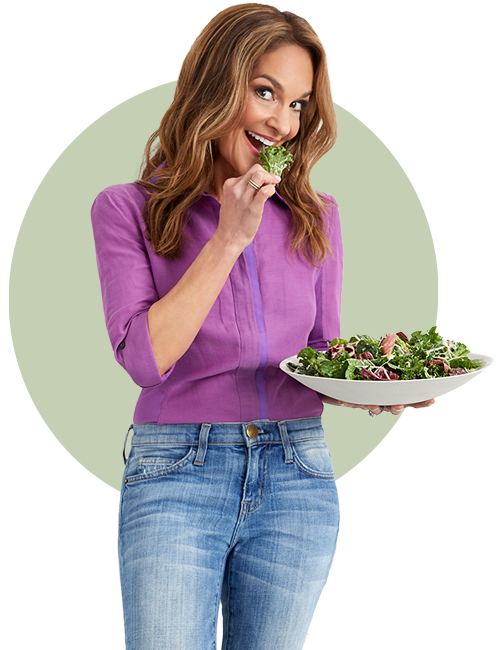5 Simple Swaps to Cut Cancer Risk

How to Cut Your Cancer Risk
Cancer is one of the scariest words in the world (I know this firsthand; my husband was diagnosed with kidney cancer about five years ago. Thankfully, he’s fine now, but it was a very dark moment when we heard that word).
That being said, it’s also a very different diagnosis today than it used to be years ago. We have better detection and prevention, as well as encouraging new treatments. And from the lifestyle perspective, there are plenty of things we can do to lower our risk, including:
- Exercise regularly and maintain a healthy weight. In fact, experts estimate that we can dodge ⅓ of all cancers by simply eating better and moving more.)
- Quit smoking and limit alcohol.
- Avoid excessive sun exposure (and wear sunscreen).
- Get screened, especially for cervical and colorectal cancers. Work with your primary to set up a formal calendar for appropriate screenings, for example, skin checks—dermatologist; colonoscopy—gastroenterologist; cervical screening and mammography—gynecologist, and so on.
You can also make any of these five simple swaps to your diet.

Swap granola for pomegranate seeds in parfaits
Instead of: Adding granola to yogurt
Try: Pomegranate seeds
Pomegranate seeds are loaded with polyphenols (like tannins, flavonols, anthycanains and ellagic acid) that may inhibit cancer cell growth and deactivate cancer-causing compounds. And they provide a nice crunch, too.

Swap unmarinated meat for marinated
Instead of: Tossing plain meat on the grill
Try: Marinating it first in a flavorful seasoning blend
Cooking meats at high temperatures produces chemicals called heterocyclic amines (HCAs), which have been linked to many forms of cancers, including colon, pancreas, bladder, prostate and breast. Studies have shown that marinating your meat before grilling can reduce HCA formation by up to 96 percent. Opt for a flavorful liquid with plenty of herbs and spices—the antioxidants in seasonings may help block the creation of HCAs. Bonus points for using turmeric as a seasoning because it contains curcumin, an anti-inflammatory and antioxidant that may help prevent cancer by interfering with aspects of cellular signaling.

Swap sour cream and butter on a baked potato for marinara sauce and Parmesan
Instead of: Topping your baked potato with butter and sour cream
Try: Adding warm marinara sauce and a sprinkle of Parmesan
Lycopene—a powerful antioxidant that’s concentrated in tomatoes—has been linked to reduce risk of certain cancers, like skin and prostate. Cooked tomatoes have more lycopene and make cancer-fighting compounds in the tomatoes more bioavailable. Bypass the butter or sour cream and spruce up your spud with this flavorful combo.

Swap celery sticks for broccoli and cauliflower for dipping
Instead of: Serving celery sticks and cucumber slices with hummus
Try: Broccoli and cauliflower florets
The cruciferous cousins, broccoli and cauliflower, contain phytochemicals called glucosinolates, which produce the protective enzyme sulforaphane. This compound packs a one-two punch against cancer because it can help detoxify harmful substances and act as an antimicrobial.

Swap popsicles for frozen grapes
Instead of: Enjoying a popsicle or ice cream
Try: Frozen purple grapes
The grapes’ red skin is rich in an antioxidant called resveratrol (the same beneficial compound found in wine), which may help keep cancer from forming and spreading. Lab studies have found that it limits the growth of many kinds of cancer cells. Plus, when frozen, grapes have the same creamy and indulgent feel as ice cream (I promise!) for significantly fewer calories, to boot.
For more foods that can help prevent cancer, click here.

